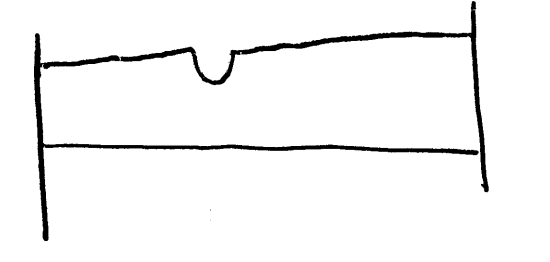In the past few months, I have heard of two more tragic teenage suicides, and it has hit me hard.
I can’t help but think: Is suicide morally permissible? Is it rational? Why do teenagers commit suicide and how can some changes in thinking be made to prevent these things from happening?How should the knowledge that I am going to die affect the way I live my life?
So I took a course from Professor Kagan at Yale University and recorded some of my thoughts.
Introduction to Suicide: Does It Make Sense? Distinguishing Issues of Rationality and Morality
The Final Topic
The fact of our mortality raises the question as to whether or not we should put an end to our life. That’s suicide, of course.
And the final topic is, under what circumstances, if any, does suicide make sense? Under what circumstances, if any, is it an appropriate thing to do?
Feature of our culture
Now, it’s a fairly widespread feature of our culture that suicide is looked upon with such a mixture of disdain, fear, finding it offensive, that it’s very hard to think clearly and discuss the topic clearly.
Most people think it’s either that you’ve got to be crazy to kill yourself. And if you’re not crazy, then it shows that you’re immoral.
Rationality and Morality
So, the very first thing to do in thinking about the topic of suicide, is to distinguish questions of rationality from questions of morality.
That is, initially, the question, under what circumstances, if ever, would suicide be the rational thing to do? And when, if ever, would suicide be a morally legitimate or a morally permissible or morally acceptable thing to do?
In posing this distinction, We’re obviously presupposing that these questions can come apart.
Example 1: 在缴纳所得税这件事上,由于骗税被抓住的几率很低,而且即使被抓住了,惩罚也不高,所以从理性(rationality)来说,选择骗税是合理的;但从道德(morality)来说,骗税是不可以被接受的。
Example 2:在选择大学的时候,如果你可以选择名校,也可以选择非名校,虽然对于你选择去哪所大学这件事没有道德(morality)要求,但选择去差一些的学校也许是不合理(rationality)的。
上述这两个例子可以说明:In principle at least, on the face of it, these two questions(about the rationality and morality of suicide) can come apart:
- Sometimes it’s rationally acceptable to do something, but it’s immoral.
- Sometimes it’s morally acceptable to do something, but it’s irrational.
So in thinking about suicide, we need to pose the two questions, one after the other.
When Is It Rational to Commit Suicide? Problems with the Two-State Requirement
Two different questions
The first thing in thinking about the rationality of suicide is to distinguish two different issues, or two different questions.:
- When, if ever, would it be true that you are better off dead? Could it be the case that your life is going so badly that you’d be better off dead?
- Even if it could be true that you’re better off dead, could it ever be a reasonable or rational decision for you to believe that you’re in one of those situations? Is your judgment correct?
Unless we’ve got the two things in place, it doesn’t seem likely that it’s ever going to be rational to commit suicide.
Two-state requirement
for the first question, could it ever be true that you’d be better off dead?
In order to make comparisons — better off, worse off; here he is in such and such a situation; he’d be better off in that other situation — you’ve got to be able to talk about:
on the one hand, what condition or state the person is before and what condition or state the person would be in afterwards, if they were to make that choice.
Call this the two-state requirement.
An objection point
Normally, when we make judgments about whether something would leave you better off or worse off, we satisfy the two-state requirement.
For example, trying to decide whether or not to marry the person or break up with the person or pick this career or change careers.
You’ve got the state you’re in and you compare it to the state you would be in. You compare the two states. That’s what allows us to say, “Yeah, I’d be better off” or “No, I’d be worse off.”
But when we’re talking about cases of suicide, cases where, well, here I am now, the before state requirement’s in place,
but if we contrast that with the after state requirement, well, that part’s not met, right? Because states and conditions presuppose existence. We can talk about are you happy? Are you sad? All of those things presuppose your existence.
But if I kill myself, I won’t exist,of course, death isn’t a state.. There is no second state to compare.So, the two-state requirement’s not met.
So, the objection goes,since there isn’t one, the judgment, I’d be better off dead, can’t even get off the ground. It’s got a logical mistake built right into it.
Two-state requirement says otherwise, and got to go.
But it turns out the two-state requirement’s got more implications than that. It’s got the implication that you can’t even say you’re better off staying alive. And that’s very, very hard to believe.
Example 1:
Suppose you save someone who has been happy all the time and he says to you, “Thank you for saving my life“.
But saying ‘thank you’ for my saving your life is to presuppose I’ve benefited you in some way. To presuppose I’ve benefited you in some way is to assume that you’re — it’s a good thing that your life has continued.
But given the two-state requirement, we can’t say it’s a good thing that your life continued, because the two-state requirement says we can only make that kind of remark when there’s a before state and an after state. And the after state would have been nonexistence.
And what that shows is not that so nonexistence really is a kind of spooky, super thin state or condition.
So,what it shows is the two-state requirement isn’t a genuine requirement on these sorts of evaluations.
Example 2
Imagine there was somebody whose life was horrible, full of pain and suffering and misery. So, if you had such a person, for their life to go longer would be bad. In which case, for their life to be going shorter, would be better for them.
And that’s all we mean when we say they’d be better off dead. Not that you’d be in some condition that’s a good one. It’s simply, you’d avoid this condition, which is a bad one.
Not that there’s some spooky super thin and hard to describe condition that they’d be in if they were dead.
And if the two-state requirement says otherwise, so much the worse for the two-state requirement.
So the cost of accepting the two-state requirement is so implausible.The two-state requirement’s just so implausible, we should let it go.
Is Life Worth Having in the First Place? An Exploration of Intrinsic Value
Live or dead depends on your view
Now, having done that, of course, doesn’t yet tell us that it could, in fact, be the case that somebody’s life could be so bad that they’d be better off dead, that the existence that they’ve got is worse than not existing at all.
Whether or not there could be such lives depends on your view about what’s the correct account of well-being. What is it that goes into making somebody’s life worthwhile?
Theorie 1:hedonism
Hedonism, according to which your quality of life is a matter of adding up all the pleasure and subtracting all the pain.
If it’s positive, your life’s worth living. And the greater the number, the greater the positive number, the more your life is worth living.
If it’s negative though, then your life’s not worth living. Having that go longer and longer is just more and more negative balance. You’d be better off having your life come to an end.
Theorie 2: throw in external goods
If we’re not hedonists,then we need a more complicated theory of the good.We need to throw in other things, perhaps, certain external goods.
It’s not just a matter of getting the insides right — the pleasure and the pain and the other mental states — there are various facts about your objective hookup with the rest of the world.
Whatever your list is of those other objective goods — well you’ll probably also want to have a list of other objective bads, besides pain.
But still, the same basic idea is going to be in place. We’re going to want to somehow add up all of the various objective goods, add up all the various objective bads, and see where the balance lies.
Do the goods outweigh the bad? If the goods outweigh the bad, that’s great. Your life’s worth living. But if the bads outweigh the good, then your life is not worth living.
Theorie 3:Pessimists
here are philosophical theories which go on to claim — pessimists, various versions of pessimistic views, which say, for everybody in all circumstances, life is so bad that they’d be better off dead.
There are philosophical views like that, but I suppose the commonsense view is, well, even if some lives may be so bad that the person is better off dead, that’s not true of all lives. It depends on the facts of the case.
Container theories
In thinking about the quality of someone’s life, you just look at the contents.
Of course, even here, we still have to return to another issue that we’ve considered before. Namely, is life itself worth having? Is the very fact that you’re alive itself a good thing?
1、Valuable container theories: You’re alive adds some positive value above and beyond whatever’s going on in your life.
2、Neutral container theories: Life itself is only a container, good or bad, depending on what it’s filled up with.
3、Modest versions of container theories: In principle, the positive value of being alive could be outweighed if the contents got bad enough.
So, let’s focus on that possibility.
Possibility 1:Valuable container theories
According to valuable container theories being alive is so valuable, that it doesn’t matter how bad the contents get, the grand total is always a positive one.
The basic idea behind valuable container theories is that life, or the life of a person, or something like that, has intrinsic value above and beyond the question of what’s going on within your life.
So pretty clearly, from the perspective of fantastic container theories, suicide will never be rational, because it’s never true that you’re better off dead, because it’s never true that your life over all, taking everything that’s relevant into consideration, gives us a negative.
Possibility 2: Neutral container theories
As the pessimist said, “As a matter of philosophical reflection, we can see that everybody’s life is worse than nothing.”,while the valuable container fans are saying, “As a matter of philosophical reflection, we can see that everybody’s life is better than nothing.”
Most of us may find ourselves somewhere in between. Either we believe in the neutral container theory and think it’s a contingent matter whether the contents are sufficiently good or bad.
Possibility 3: modest version of the valuable container theory
Or, we may accept the modest version of the valuable container theory. On that theory, of course, life has some intrinsic value, but it’s got a finite intrinsic value. And in principle, even that could be outweighed if the contents get bad enough.
And so again, it would be an empirical question : **In which cases do the contents get bad enough?
Medical Complications: Rationale for Euthanasia
A case about terminal patient
We could imagine somebody in the terminal stages of some illness, where their cancer perhaps is causing them a great deal of pain. And they’re just distracted by the pain and wishing it would come to an end.
Some terminally ill patient whose disease is getting worse and worse. And so, there are fewer and fewer of the good things in life that the future holds for them. Instead, what the future holds is more and more pain, suffering, incapacity, and frustration.
When it gets bad enough, in some of those cases we, at least, can correctly say of them, they’d be better off dead.
The overall bottom line
Let’s try to draw some different cases.And let the x-axis represent time and the y-axis represents how good or bad your life is at that time.
For those of us who are fans of the neutral container theory, the thing to say is this represents the overall goodness of your contents or the overall badness of your contents. The higher up, the better the contents. The lower down, the worse the contents.
For those who are fans of the modest container theory, this represents the grand balance. So it’s contents plus the extra bit you get from being alive.(if you’re a fan of the modest container theory, then even if the contents are negative, the grand balance might still be positive. )
So this represents the overall bottom line, whether you accept the neutral container theory or the modest container theory.
And suppose the point that end of the line(N.D) represents when you would die of natural causes, natural death.
Case 1: suicide doesn’t ever make any sense
So, here’s an example of what a life might look like.It’s going along pretty well and then things get worse. And things sort of deteriorate.

So, towards the end, life’s not as great as it was when you were young and vigorous and healthy and had all sorts of opportunities and accomplishments. But still, till the very end, it stays positive.
Well, if that’s what your lifeline would look like, pretty clearly, suicide doesn’t ever make any sense.Yes, things are beginning to get worse, but they never get so bad that you’re better off dead.
Case 2:suicide would become rational:
For suicide to make sense, it’s got to be the case that your life takes a turn for the worse. Not just any old turn for the worse, but a turn so much for the worse, that for some chunk of your life, your life is worse than nonexistence, the zero line, the x-axis.

If your existence is going to be worse than nothing. Here, we can at least broach the question in an intelligible way. Might suicide make sense?
Point A:the downturn begins
Point A is where the downturn begins. Should you kill yourself at that stage?
No. Because, after all, even though there’s a downturn, things are getting worse, there’s still going to be another period of life, where although life isn’t as good as it had been before, it’s still better than nothing.
Killing yourself at this earlier moment is, we might say, premature. It’s throwing away a chunk of life that would still be worth having. It’s not the right thing to do. It doesn’t make sense rationally.
Point B:your life is becoming worse than nothing
Here’s Point B at which your life is becoming worse than nothing. From this moment on, your life is worse than nothing.
If you’ve got complete control over when to kill yourself, well, that would be the time to do it.
It’s straightforward enough to say if your life is going to become worse than nothing and you have complete control over when you kill yourself, it seems pretty plausible to say the precise moment at which suicide would become rational would be exactly that moment at which your life became not worth having.
Euthanasia
But you might not have that kind of control.
What if you’ll no longer have the ability to kill yourself, because you won’t have control over your body.
It raises the question of suicide also turns into or comes up against, the question about euthanasia, mercy killing.
Under what circumstances is it ever rational to ask somebody else to kill you? Under what circumstances, if ever, is it morally legitimate to kill somebody else?
Suicide on a Positive-Negative Life Curve
Killing yourself earlier might still make sense
Suppose you live in a society which is so unenlightened as to have ruled out euthanasia. In fact, what we don’t allow is the possibility of somebody else coming along and killing you when the time comes.
So, you know the time is going to come at which you’d be better off dead. But once you’re there,it’s too late. You can’t do it. You won’t have the ability to kill yourself, and nobody else will be able to do it for you.
In that case, killing yourself earlier might still make sense.
What do I think about the value of this last bit
If you kill yourself earlier, you’re throwing away some life that’s worth living. But if this is the last moment at which you’re going to be able to kill yourself, it might still make sense, rationally.
Your choice is really just this. End it at point A and throw away this whole last bit. Or not end it and then continue until you die from the disease.On the whole, it’s got a good part and it’s got a bad part. Is it better to have the good part and the bad part or better to have none of it?
So, your question is only, what do I think about the value of this last bit?

And the answer, of course, is if the bad outweighs the good. So that the rational thing to do would be to decide to end your life then, when you still can, rather than condemn yourself to the long final stretch of life not worth living.
Although your life is now still going to be a mixture of good and bad, and you wish there were a way to end it at point B, you don’t have that choice. It’s throw away the good and the bad, or keep them both. And in this story, obviously enough, the good is enough to outweigh the bad. So, suicide doesn’t make sense in that situation.
Case 3:to see the whole life
Suppose your life’s going along really great and it takes a turn for the worse but then is going to get better. So, it ends here with death by natural causes.

Suicide doesn’t make sense in this situation. Because even though what you’re going to have during this period is a life worse than the life you had before, the life you’ve got here is still above the x-axis. It’s still a life worth living.
This point is probably crucial enough that it’s worth taking a moment to reflect on. The fact that your life is less good than it had been, less good than indeed maybe all the lives around you are having — all the people around you are having lives that are better than yours — still doesn’t mean that your life is so bad that you’re better off dead.
It’s easy to lose sight of that, right? Here we are sliding down and all we see is the fact that we’re moving down. It’s natural to get caught up in the thought “I’m better off dead,” but it’s a mistake. You’re not better off dead.
What’s the major cause of death among teenagers? Well, it’s suicide .The kind of mistake that I think leads most teenagers into killing themselves is something like this.
They’ve broken up with their girlfriend. They’ve flunked out of school. And they think to themselves, “Oh, from here on out, my life’s not worth living.”
And the answer is, no, that’s actually, as an objective matter, probably not the case. Even if your life would be less worth living than you had hoped it would be, it’s still better than nothing.
Of course, in the typical case, I suppose what it really looks like is this figure.Small dip then continues wonderfully. But you lose sight of all the good stuff yet to come while you’re in the middle of the dip.









